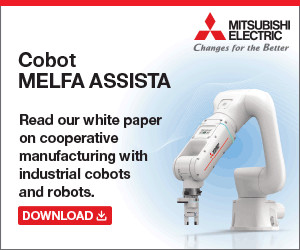Understanding Medical Anthropology
Medical anthropology examines how cultural, social, and behavioral factors influence health. This field offers crucial insights for health systems research, particularly when integrating advanced technologies like robotics.
Core Concepts
Medical anthropology focuses on concepts such as cultural perceptions of illness, traditional healing practices, and social determinants of health. For example, examining how different communities view and treat illnesses helps in designing healthcare solutions that are culturally appropriate and more likely to be accepted. Understanding these facets enhances our ability to create health systems that respect and integrate diverse cultural contexts.
Importance in Health Systems
Medical anthropology is vital in health systems as it informs the design and implementation of healthcare technologies. When incorporating robotics into patient care, recognizing cultural sensitivities ensures better acceptability and effectiveness. For instance, in some cultures, robotics must align with traditional caregiving roles. This interdisciplinary approach decreases resistance and improves patient outcomes by tailoring technology to meet diverse needs.
Intersection of Medical Anthropology and Robotics
Medical anthropology and robotics intersect to create innovative healthcare solutions. This collaboration leverages cultural insights and technological advancements to improve health systems.
Historical Context
Medical anthropology emerged as a field in the mid-20th century, focusing on cultural and social influences on health practices. Concurrently, robotics research gained momentum, leading to the creation of automated systems for various industries. As the demand for healthcare solutions grew, incorporating medical anthropology into the development of medical robotics became crucial. Integrating cultural insights with technological innovation paved the way for human-centered healthcare robotics.
Recent Developments
Robotics in healthcare has seen rapid advancements. Medical anthropologists now collaborate with engineers to design culturally sensitive robotic systems. Examples include robots that assist in elderly care, understanding cultural norms, and managing chronic diseases using patient-specific data. Combining robotics with cultural insights ensures improved patient interactions and acceptance. Current projects focus on enhancing robot adaptability to different cultural settings, ensuring effective deployment across diverse healthcare environments.
Case Studies in Health Systems Research
Various case studies illustrate the effective integration of medical anthropology and robotics within health systems research. These examples provide valuable insights into how this interdisciplinary approach benefits healthcare delivery and patient outcomes.
Integration of Robotics
Robotic systems enhance healthcare by providing precise, efficient, and culturally sensitive solutions. Anthropological insights help tailor these systems to meet specific community needs. For instance, in Japan, eldercare robots incorporate local cultural practices, improving acceptance and effectiveness. Another example is in rural India, where robots assist in telehealth services, bridging gaps in healthcare access.
Success Stories
Several success stories highlight the impact of combining medical anthropology and robotics. In Norway, robotic companions for elderly patients have reduced isolation and improved mental health. In Ghana, anthropologists guided the design of robotic aids for traditional birth attendants, improving maternal outcomes. These instances illustrate how culturally informed robotic solutions lead to better health outcomes and increased patient satisfaction.
Challenges and Ethical Considerations
Navigating the fusion of medical anthropology and robotics unveils multiple challenges. Addressing these issues ensures the development of effective, responsible, and culturally sensitive healthcare solutions.
Technological Barriers
Integrating robotics in healthcare encounters numerous technological barriers. Compatibility between anthropological insights and robotic systems often presents difficulties. For instance, ensuring that robotic interfaces cater to diverse cultural contexts requires advanced adaptive technologies. Another challenge includes reliable data collection; cultural nuances impact how data is interpreted and utilized. Overcoming these barriers demands continuous collaboration between engineers, medical anthropologists, and healthcare professionals to ensure that robotic systems are universally applicable and functional.
Ethical Dilemmas
Ethical dilemmas arise when robotics intersects with medical anthropology in healthcare. Protecting patient privacy must be paramount, especially when sensitive cultural information is involved. Informed consent remains critical, as patients should understand how their cultural data will be used with robotics. Additionally, ensuring equitable access to these advanced healthcare solutions poses a significant ethical concern. Addressing these dilemmas requires rigorous ethical guidelines and inclusive policymaking to foster trust and fairness in deploying robotics within diverse healthcare systems.
Future Directions
The future of integrating medical anthropology with robotics in health systems is promising. We can expect numerous innovations and evolving roles that will reshape healthcare delivery.
Innovations in Robotics
Advancements in robotics are set to revolutionize healthcare. We anticipate more autonomous robots capable of performing complex surgeries with high precision, minimizing human errors. Enhanced AI algorithms can enable robots to better understand and adapt to cultural contexts, leading to more personalized patient care. Researchers are developing exoskeletons for elderly and disabled individuals to improve mobility and independence, directly addressing the needs identified by medical anthropologists.
Evolving Roles in Health Systems
As robotics advance, roles within health systems will also evolve. Medical anthropologists will increasingly collaborate with roboticists to ensure robots are culturally attuned and ethically designed. Healthcare professionals will need training to work alongside robotic systems, integrating anthropological insights into clinical practice. Policymakers will create frameworks to address ethical concerns and ensure equitable access to robotic healthcare solutions, promoting inclusive and effective health systems.
Conclusion
Our exploration into the intersection of medical anthropology and robotics in healthcare reveals a promising future for health systems. By combining cultural insights with technological advancements, we’re developing solutions that are not only effective but also culturally sensitive. The collaboration between medical anthropologists and roboticists is transforming elderly care, chronic disease management, and patient interactions.
As we move forward, it’s crucial to overcome technological and ethical challenges to ensure equitable access to these innovations. The evolving roles within health systems will require continuous collaboration and robust ethical frameworks. We’re confident that with these efforts, the integration of medical anthropology and robotics will lead to more personalized and effective healthcare solutions for diverse populations.





